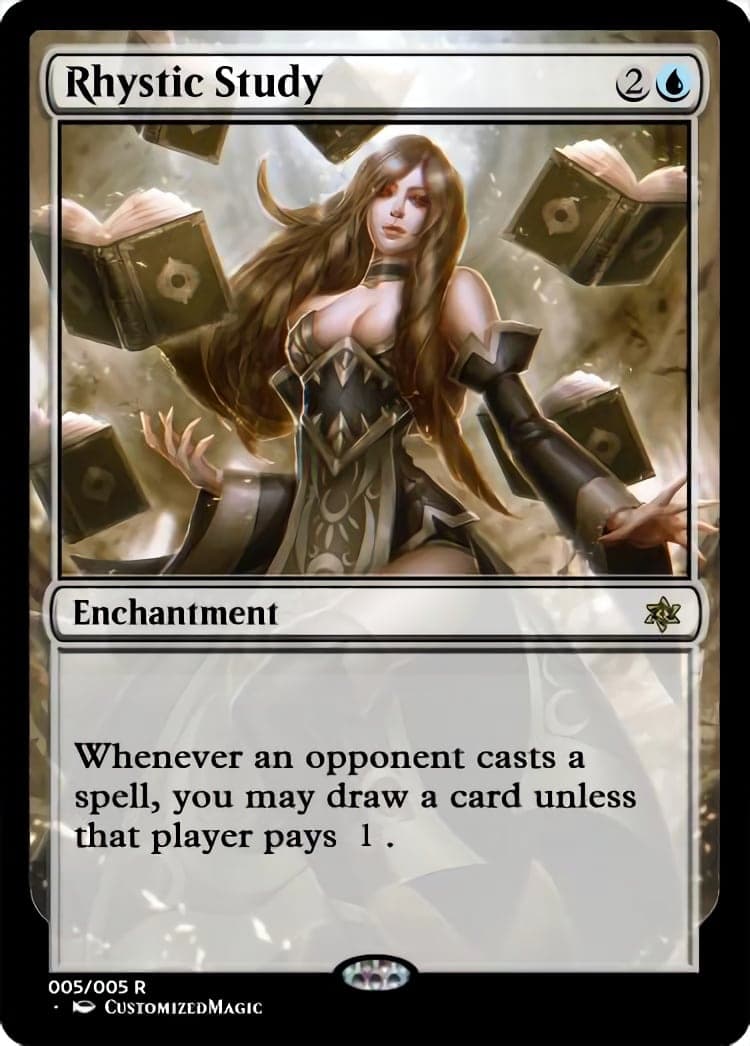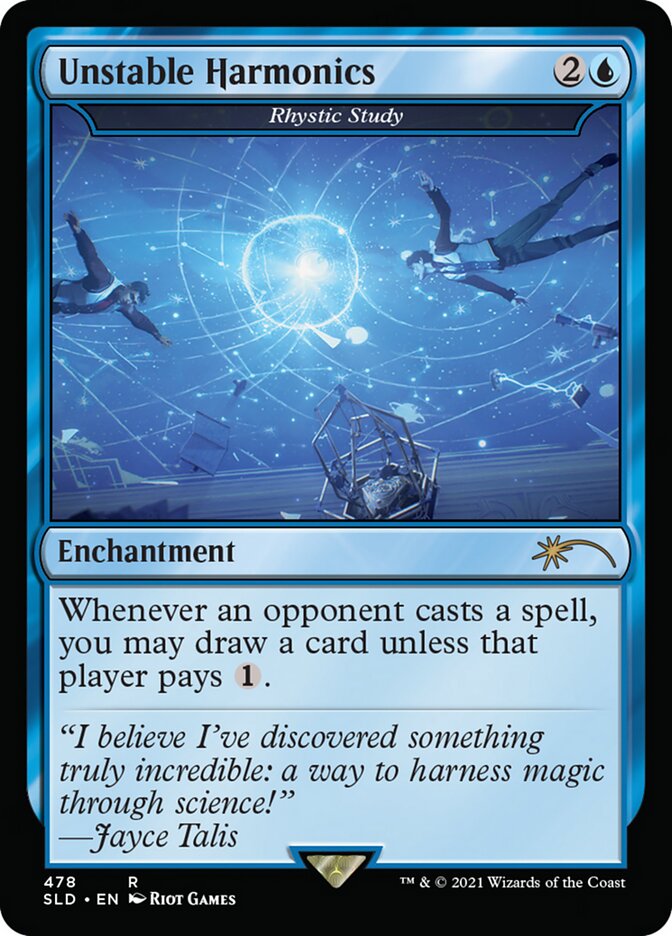Budget Grixis Rhystic Study Alternatives For Commander
Is Rhystic Study truly the auto-include powerhouse some claim it to be, or is its reputation inflated? The truth is, Rhystic Study's power is highly context-dependent, thriving in specific play environments while underperforming in others. Understanding these nuances is key to optimizing your Commander deckbuilding strategy and gameplay.
The card's dominance in casual Commander pods is undeniable. In these settings, opponents often underestimate or simply disregard the incremental cost of letting you draw cards, leading to a snowball effect that quickly puts the Rhystic Study player far ahead in card advantage. The groans and surprised exclamations when the Rhystic Study player pulls ahead are a common refrain in such games. This casual disregard for the "tax" imposed by Rhystic Study is precisely what fuels its potency. The seemingly insignificant one mana cost to draw a card often goes unpaid, allowing the Rhystic Study player to amass a formidable hand and ultimately control the game. This dynamic highlights a key aspect of casual Commander: the prioritization of fun and social interaction over strict strategic optimization. Players in casual environments are less likely to meticulously track card advantage and more likely to prioritize playing their own cards and developing their board state, even if it means giving an opponent a slight advantage.
| Card Name | Rhystic Study |
| Mana Cost | {1}{U} |
| Type | Enchantment |
| Rarity | Rare |
| Text | Whenever a player casts a spell, if its not a creature spell, its controller draws a card unless they pay {1}. |
| Set | Prophecy (and various reprints) |
| Reference | Gatherer - Rhystic Study |
However, the landscape shifts dramatically in competitive Commander (cEDH) environments. Here, the one mana "tax" becomes a critical calculation. Opponents are keenly aware of the card advantage engine Rhystic Study represents and are far more likely to pay the one mana. This forces a crucial decision: allow the opponent to draw cards, fueling their engine, or pay the tax, hindering their own development. This dynamic transforms Rhystic Study from a passive advantage engine into a taxing mechanism that subtly shapes the flow of the game. In these high-powered games, even a single card can be the difference between victory and defeat, making Rhystic Study's tax a significant consideration.
The perception of Rhystic Study as a budget-breaker is also often misconstrued. While the card itself commands a premium price, attributing the high cost of Grixis (Blue/Red/Black) Commander decks solely to Rhystic Study is a simplification. Dual lands, powerful interaction like Force of Will and Mana Drain, and other expensive staples contribute significantly to the overall cost. A well-optimized Grixis deck can certainly be built for a more reasonable budget by prioritizing efficient alternatives. This misconception likely stems from the card's visibility and reputation, leading players to conflate its individual price with the overall deck cost. While Rhystic Study is undoubtedly a valuable inclusion, it is not the sole driver of expensive Grixis decks.
For budget-conscious players seeking Rhystic Study alternatives, Mystic Remora emerges as a compelling option. While not a perfect substitute, Mystic Remora provides similar card draw potential at a fraction of the cost. The downside, of course, is the vulnerability of a creature compared to an enchantment. Maintaining the Remoras presence on the board requires careful planning and resource management, particularly in the early game. Playing Mystic Remora on turn one can be a tempo setback, as protecting it often necessitates diverting resources away from developing your own board state. This vulnerability highlights the trade-off between cost and resilience, a common theme in budget deckbuilding.
The original context of Rhystic Study, printed in the Prophecy set before Commander's rise to prominence, further illuminates its unique position. In 1v1 formats, cards that directly impacted the board state were preferred, and opponents were more inclined to pay the one mana to prevent card draw. The advent of multiplayer Commander drastically altered this dynamic, making card advantage even more crucial and creating scenarios where paying the one mana repeatedly becomes untenable. This shift in the game's landscape fundamentally changed the value proposition of Rhystic Study, transforming it from a niche role-player into a staple in many Commander decks. The multiplayer nature of Commander incentivizes players to disrupt opponents' strategies, and Rhystic Study provides a subtle yet powerful means of doing so.
The prevalence of Rhystic Study in blue Commander decks is often overstated. Its inclusion should be a deliberate choice based on the expected meta and deck strategy. In highly casual settings where opponents consistently decline to pay the one, it shines. Conversely, in highly competitive metas where every mana and card draw matters, its impact can be muted. Blindly including Rhystic Study in every blue deck is a suboptimal strategy. Careful consideration of the specific play environment and deck composition is crucial to maximizing its effectiveness.
Beyond the strategic considerations, the legal implications bear mentioning. Rhystic Study, like all Magic: The Gathering cards, is intellectual property of Wizards of the Coast. Fan-created content, such as deckbuilding websites and strategy discussions, operates under the permitted fan content policy. This distinction is crucial to acknowledge and respect the intellectual property rights of the game's creators.
Ultimately, the debate surrounding Rhystic Study underscores a fundamental aspect of Magic: The Gathering: context is king. Card evaluation is not absolute but rather a function of the environment in which it is played. Rhystic Study, with its unique blend of card draw and resource denial, exemplifies this principle. Its power fluctuates dramatically depending on the meta, play style, and deck construction, making it a fascinating case study in strategic deckbuilding.


